
1 Arthur C. Clarke and Stanley Kubrick in the Aries lunar lander set.

1 Arthur C. Clarke and Stanley Kubrick in the Aries lunar lander set.

2 Pierre Boulat takes stills at dawn, assisted by Catherine Gire.
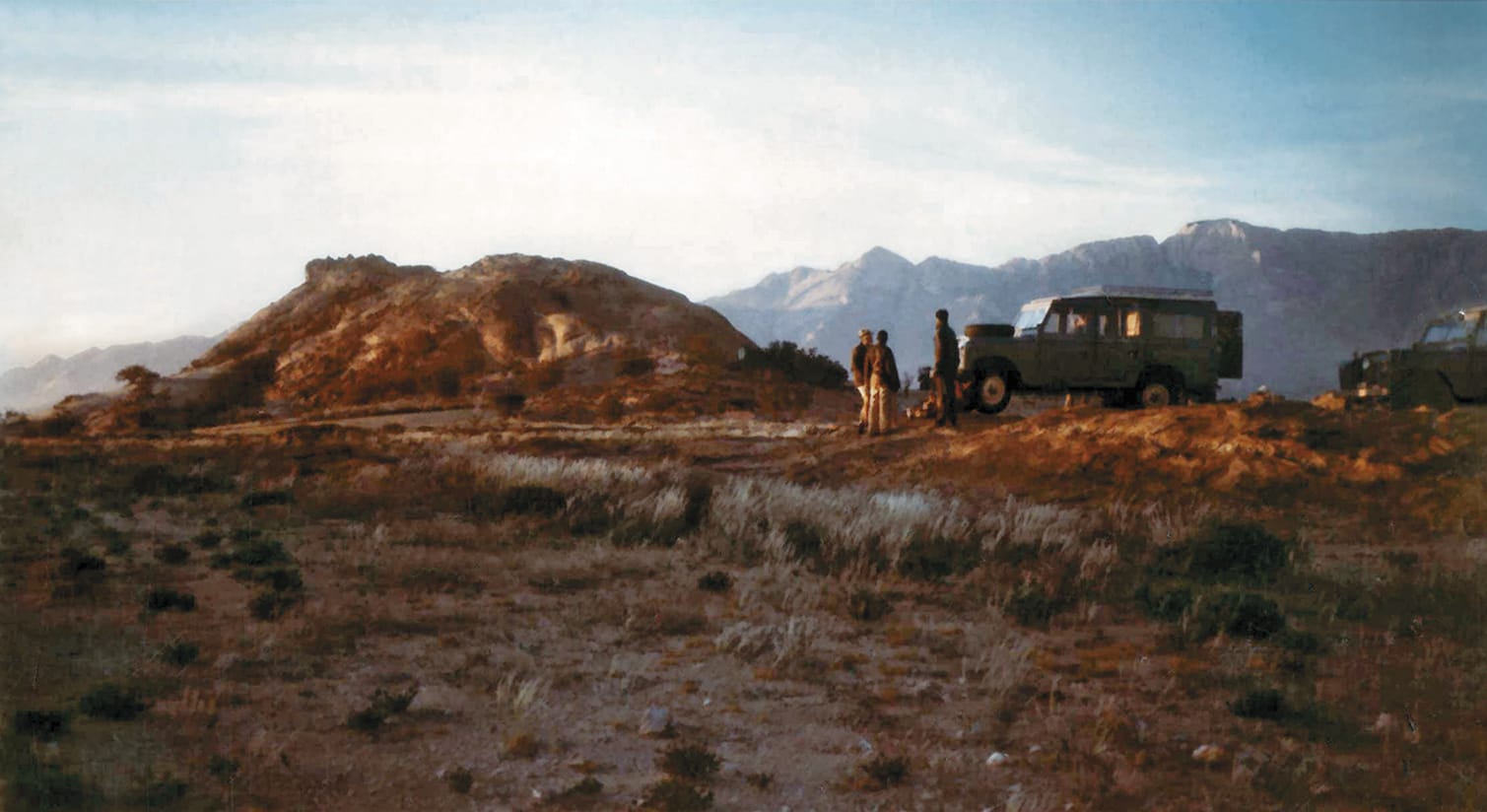
3 Scouting Dawn of Man locations in the Namib Desert.

4 Colin Cantwell “pivot point” test shot of monolith and African sky before the sun and moon were added.

5 Dan Richter as Moonwatcher intuits a new use for a large thighbone.

6 Orion space plane matches speed with Space Station 5. This and most of the stills presented in this color insert section are from rare 65-millimeter footage not actually used in the film.

7 Heywood Floyd’s shuttle approaches the space station.
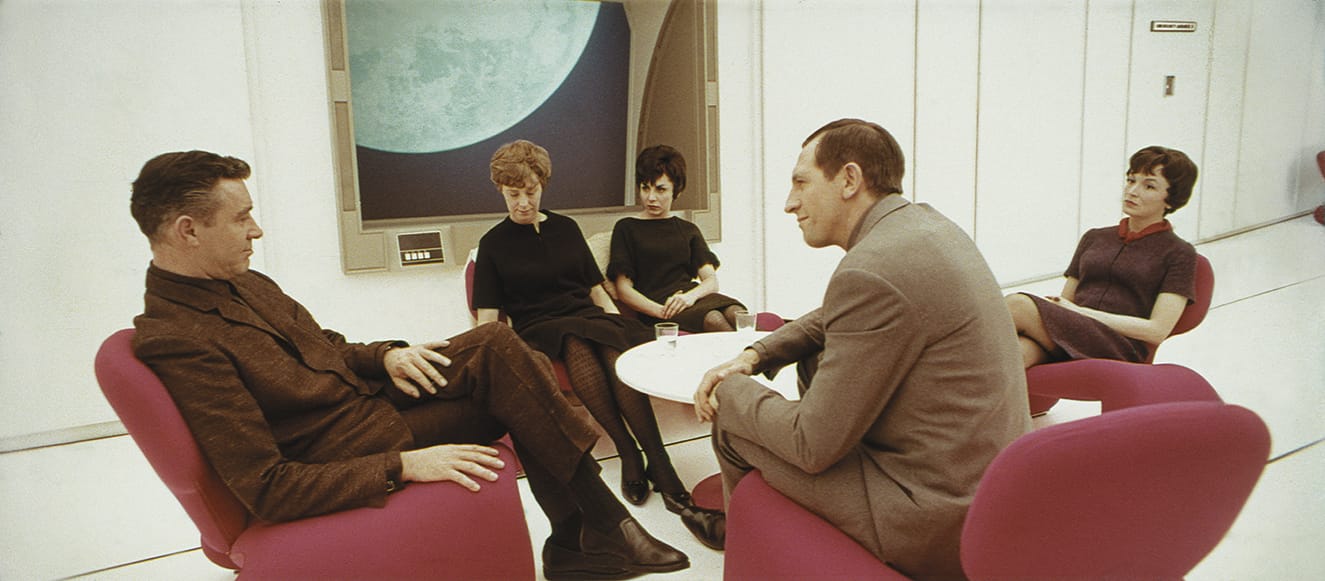
8 William Sylvester as Floyd encounters an inquisitive group of Russian scientists.
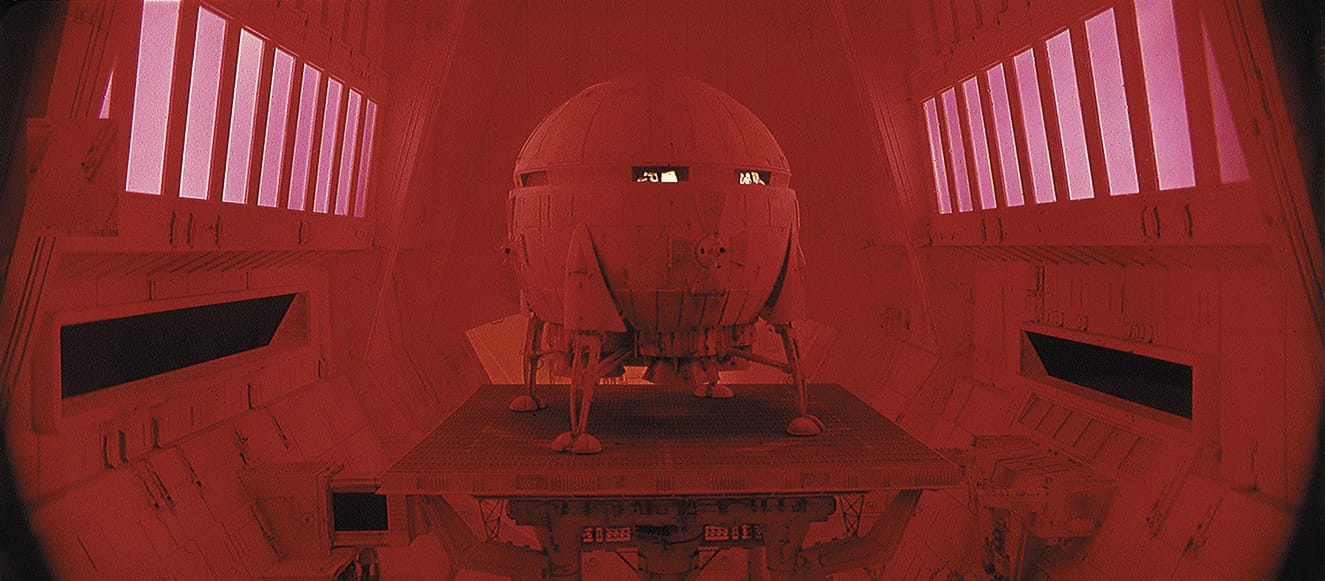
9 Aries spacecraft on its landing pad. The moon base windows haven’t yet been filled with live-action footage.
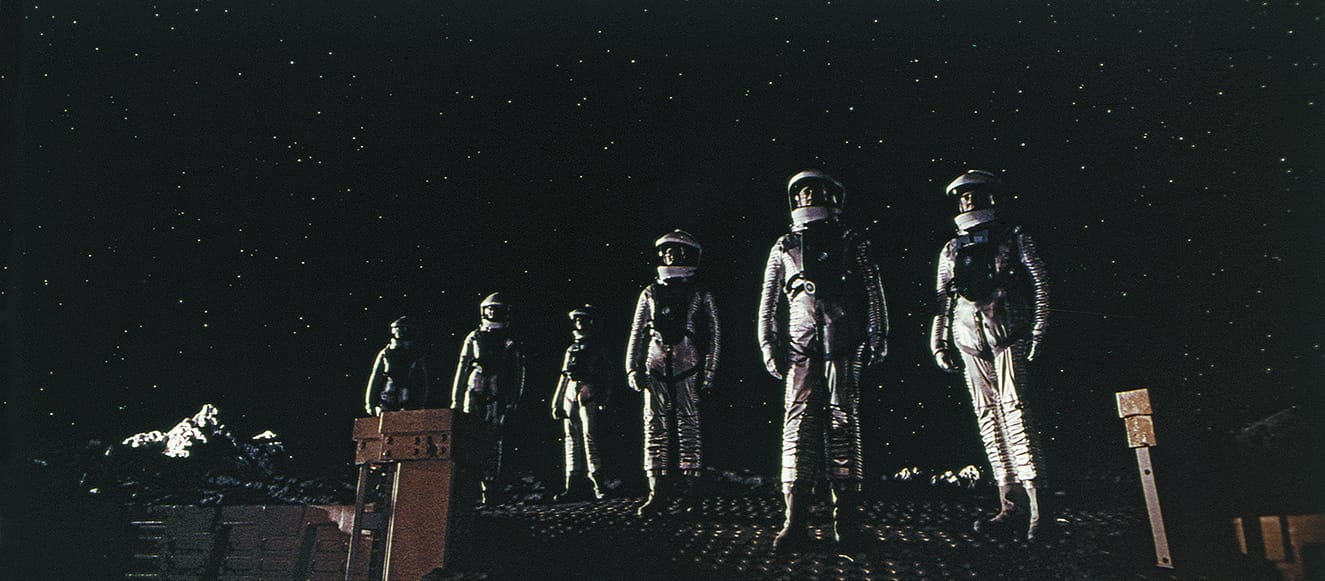
10 Accompanied by Clavius Base officials, Floyd surveys the lunar monolith.
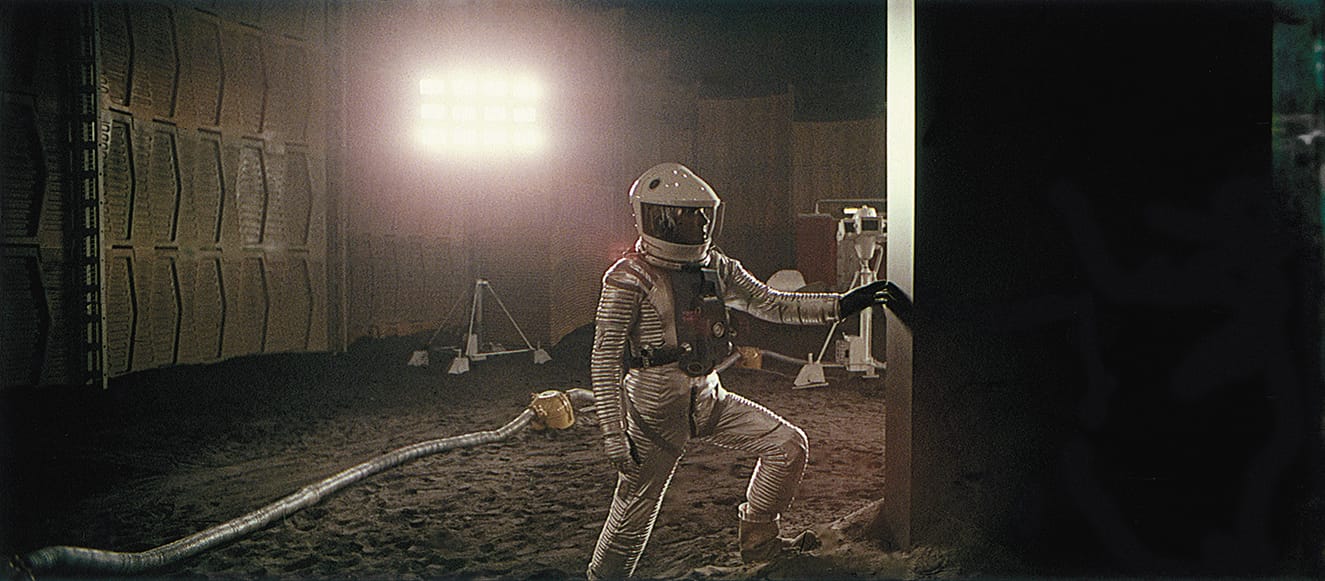
11 Sylvester touches the monolith—an action Dan Richter will repeat a year later for the Dawn of Man sequence.
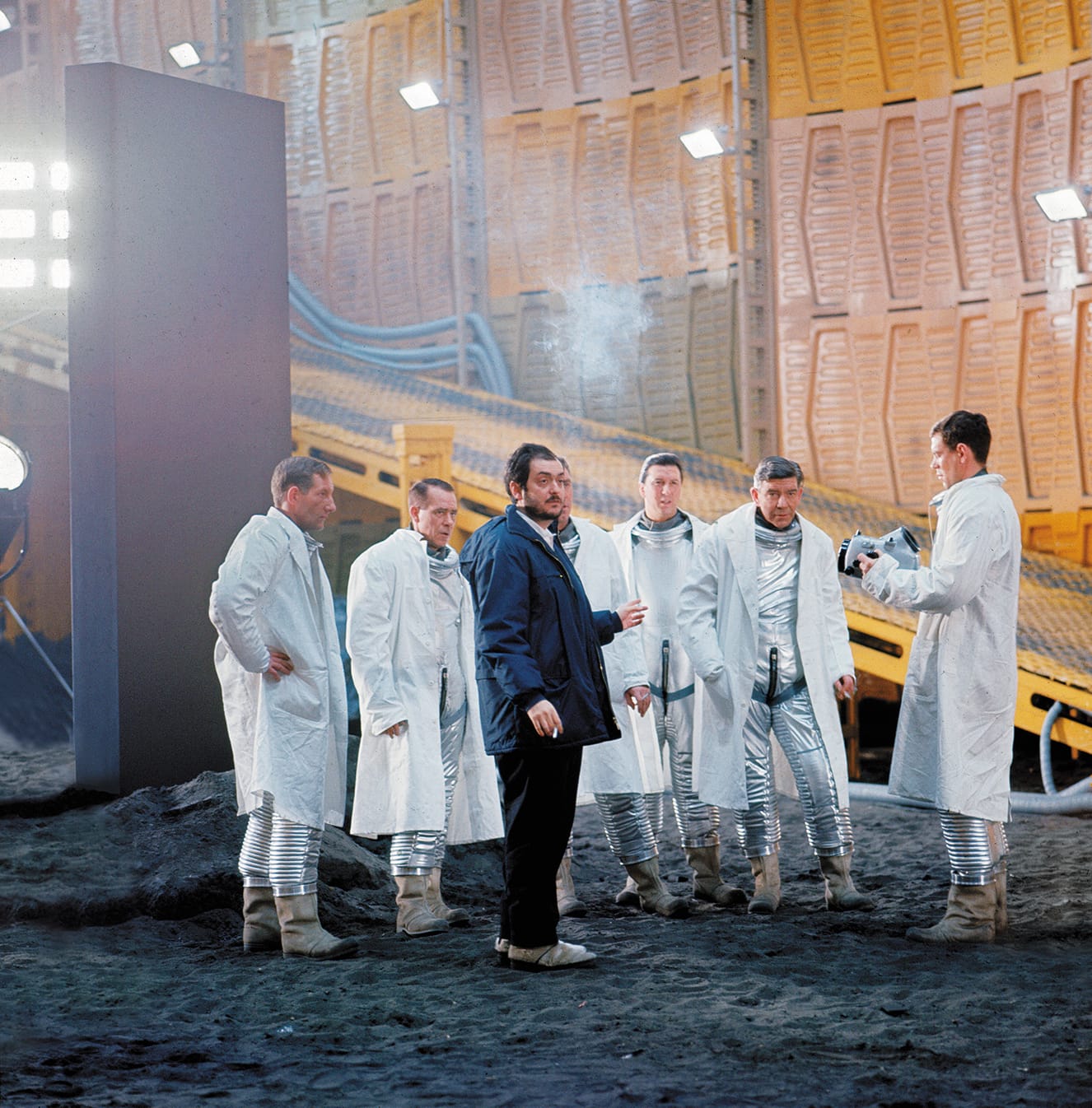
12 Kubrick works with his actors under the usual cloud of cigarette smoke.
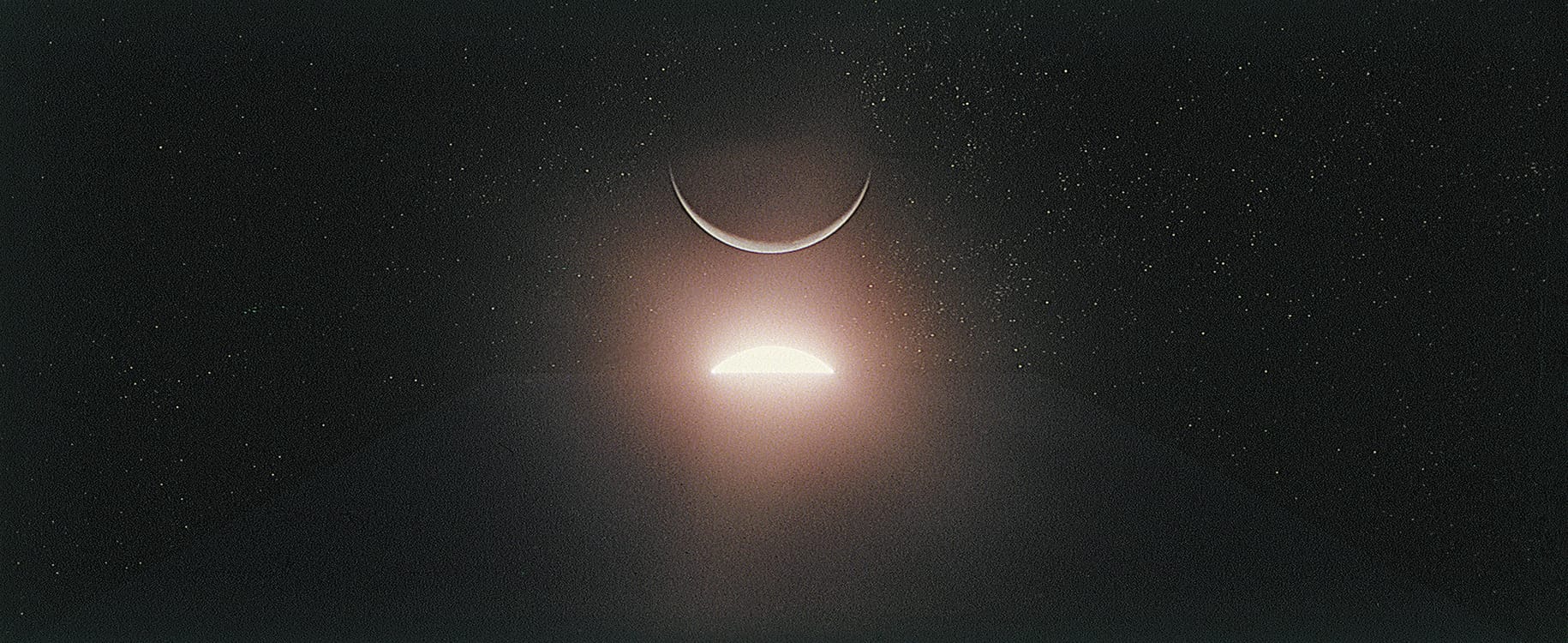
13 Sunrise over the lunar monolith—Cantwell’s second “pivot point” shot.

14 The astronauts recoil from a powerful radio signal.
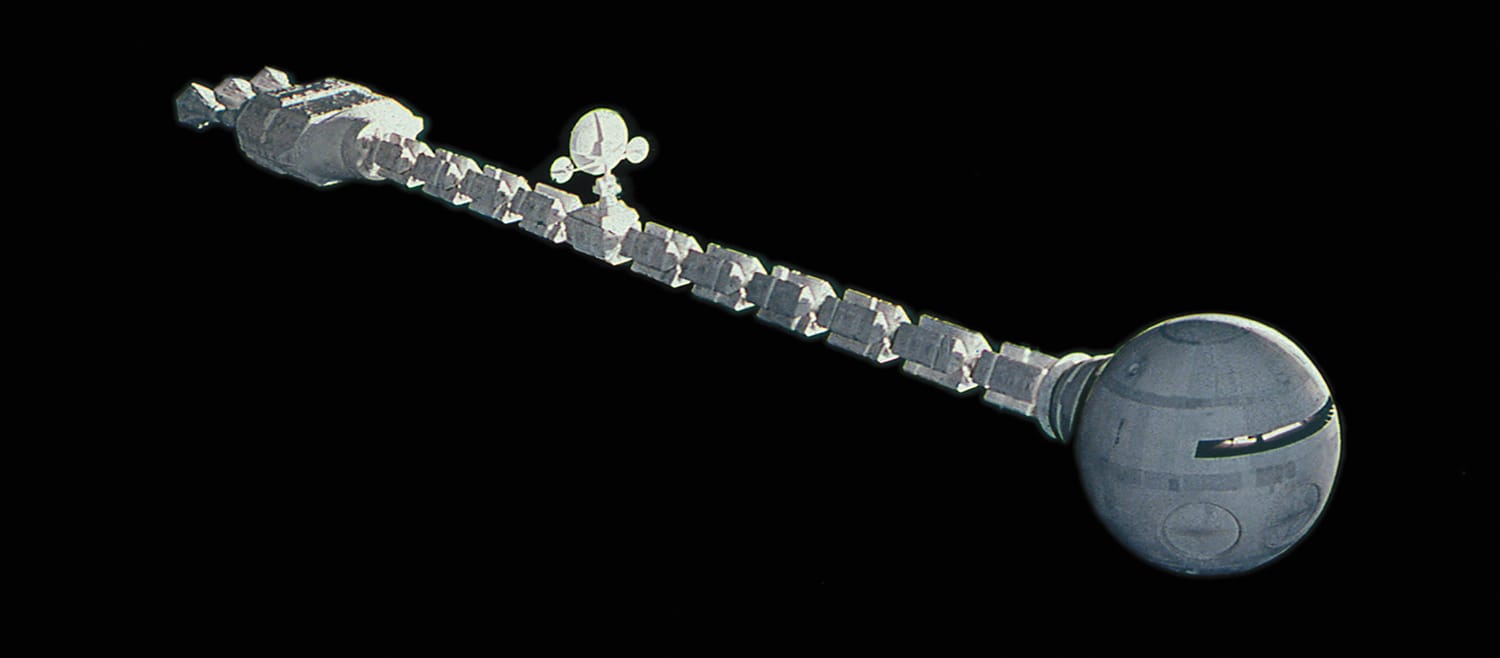
15 The Jupiter-bound Discovery spacecraft.
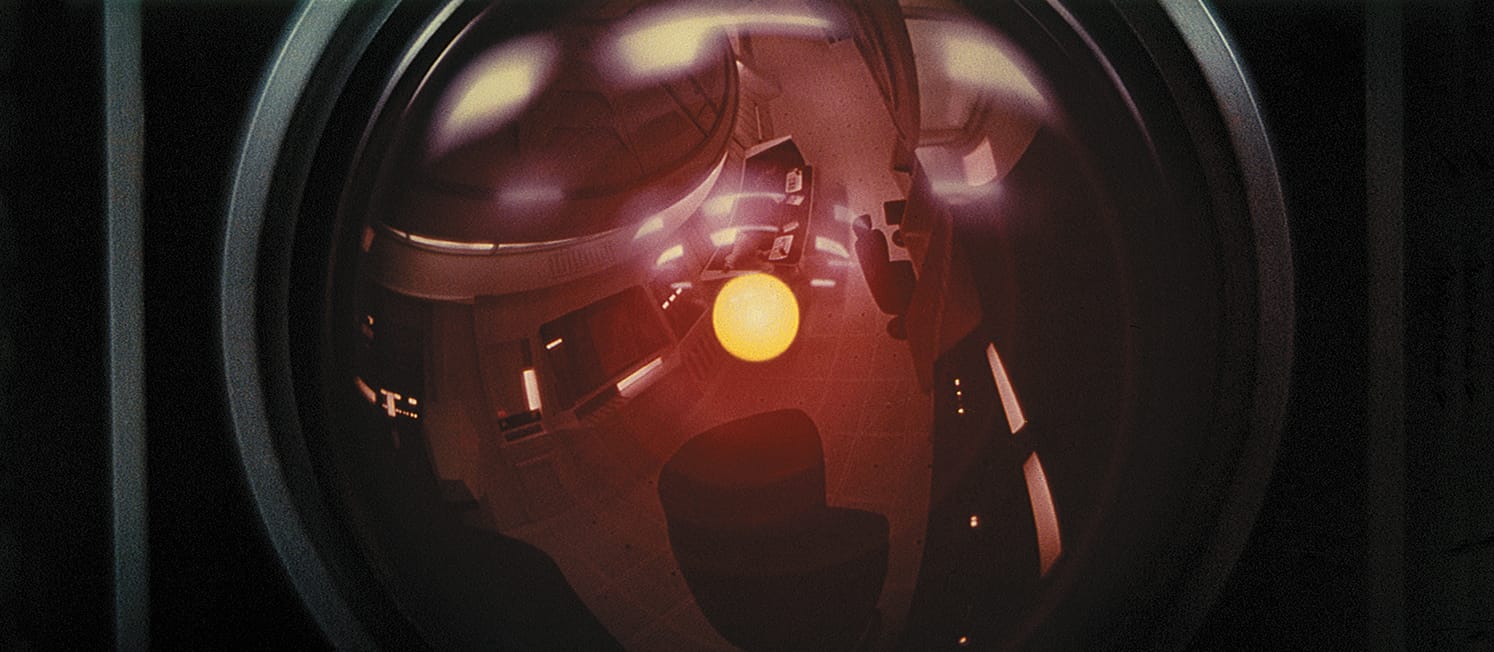
16 HAL’s red eye was actually a Nikon 8-millimeter wide-angle lens lit from behind.
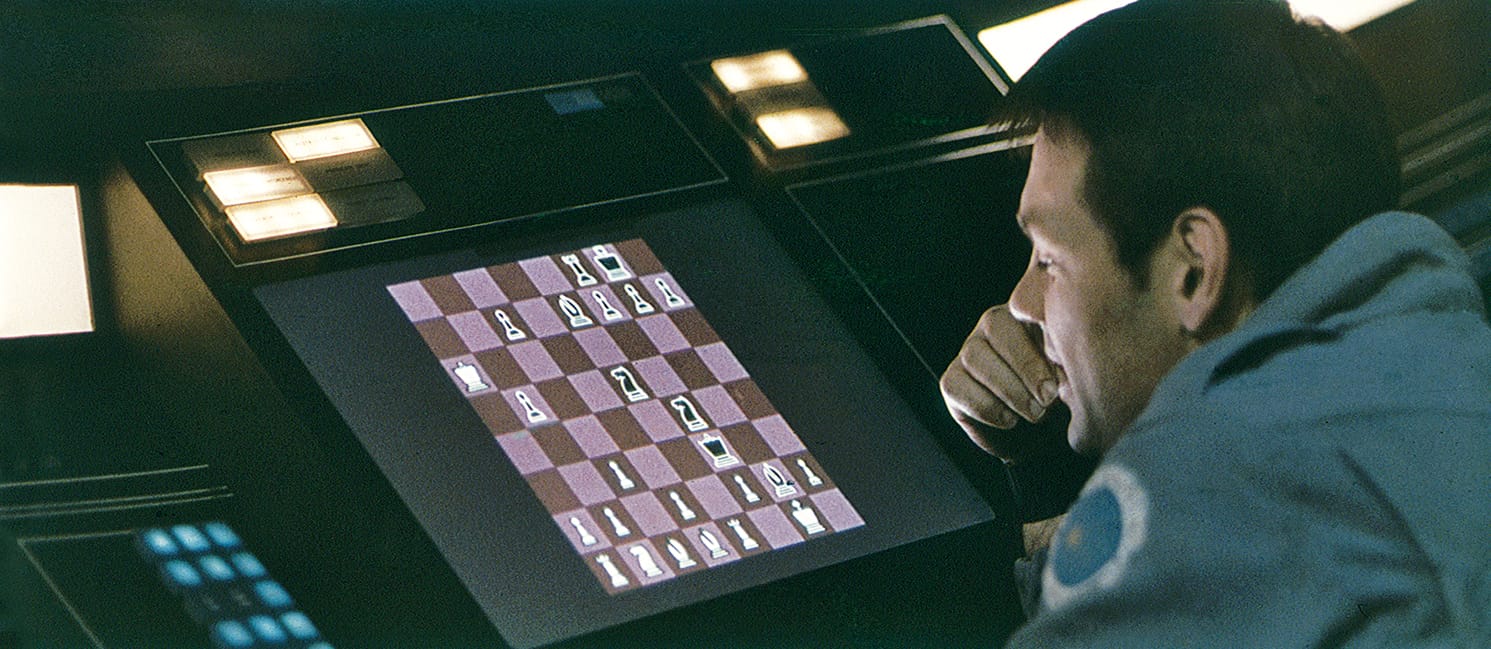
17 Gary Lockwood as astronaut Frank Poole plays chess with HAL.
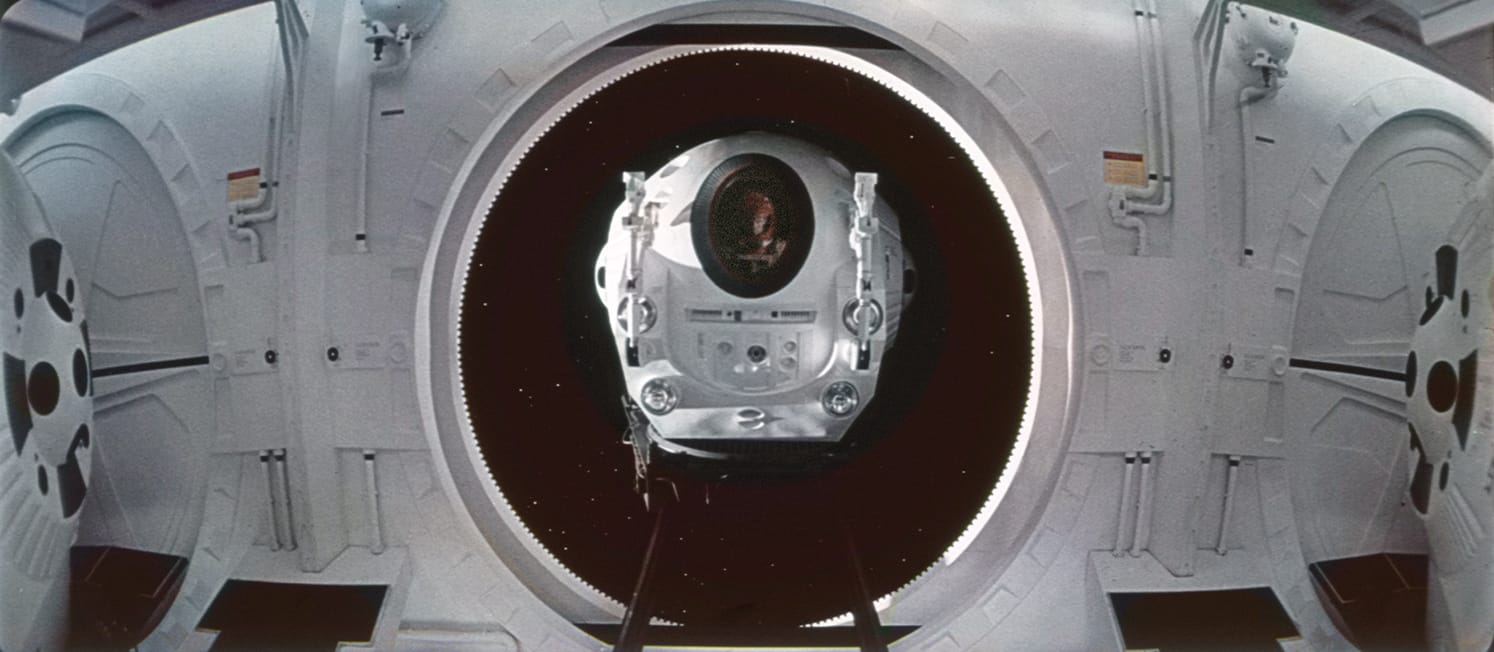
18

19 Keir Dullea as Bowman being extruded from Discovery in his space pod.
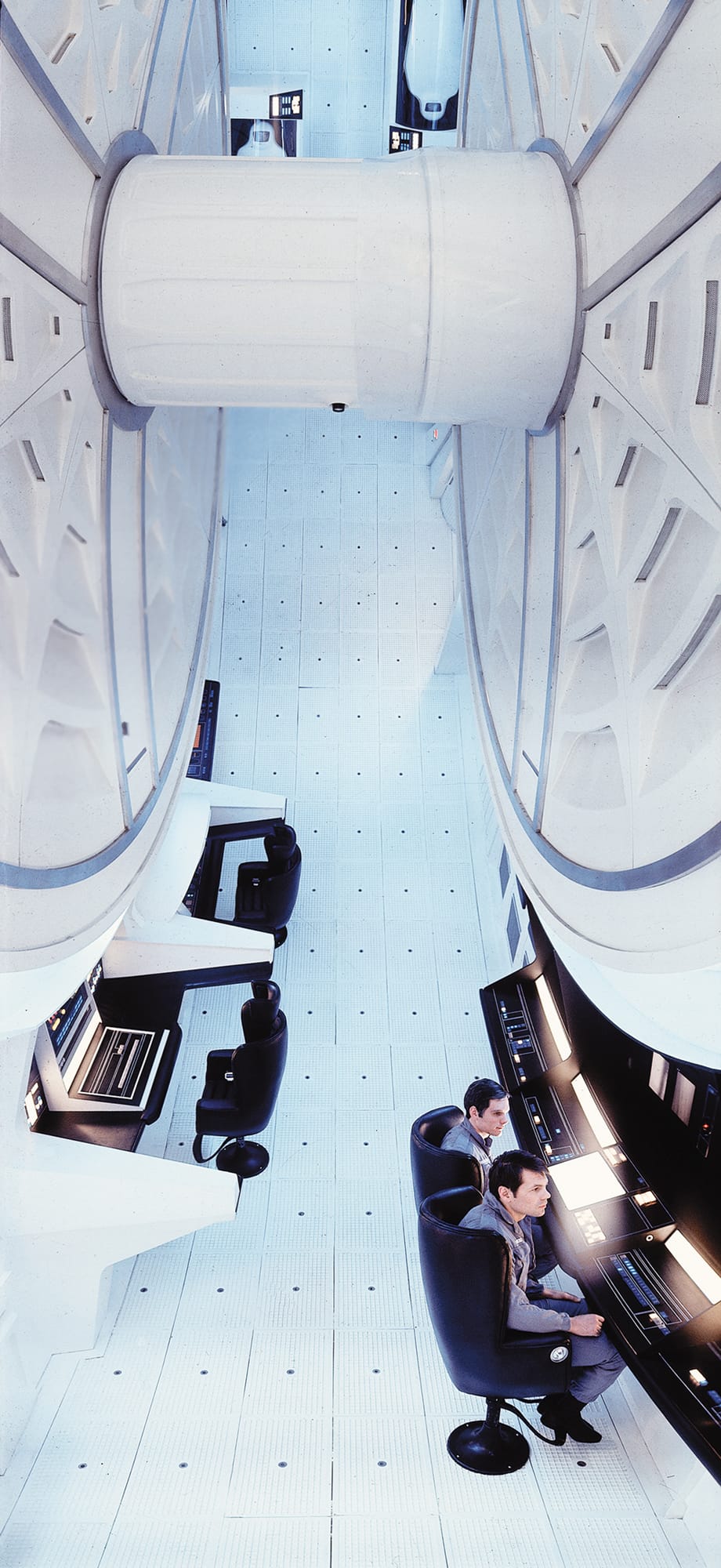
20 Keir Dullea and Gary Lockwood as astronauts Dave Bowman and Frank Poole, seated at HAL’s computer console in Discovery’s astonishing centrifuge set.

21 Dangling from wires, stuntman Bill Weston plays Dave Bowman retrieving the antenna guidance unit.
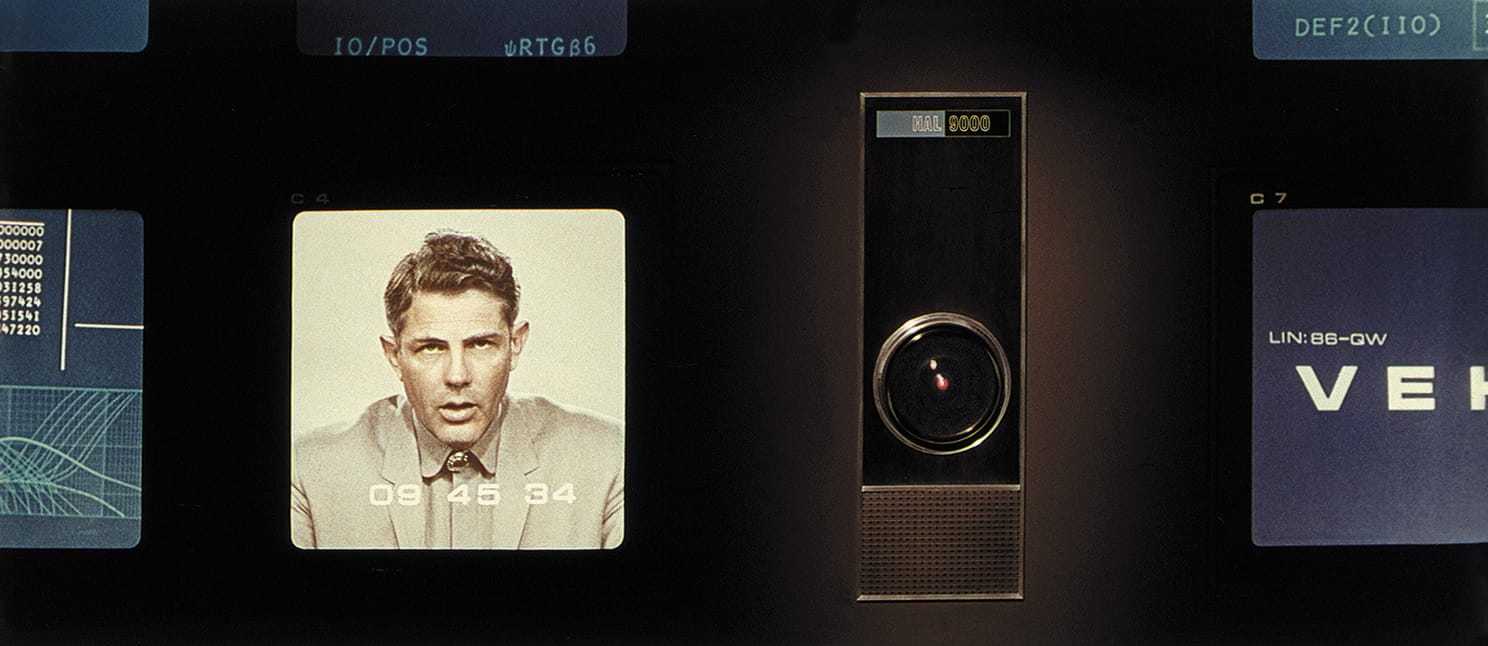
22 Mission controller Frank Miller delivers news that HAL is making mistakes.

23 Poole and Bowman discuss HAL, visible through the pod window, ostensibly in private—though he’s reading their lips.
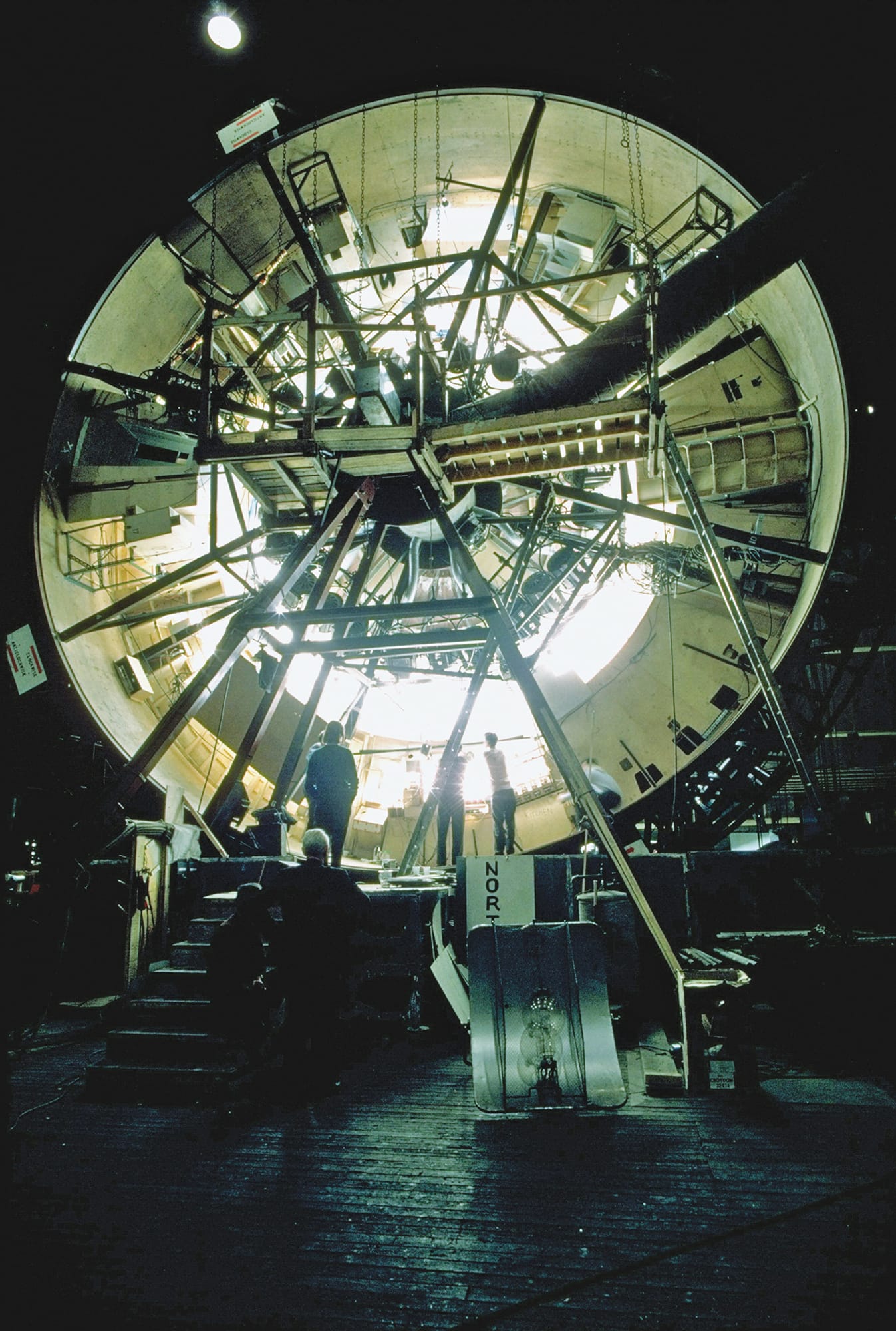
24 At thirty-eight feet in diameter and thirty tons, 2001’s centrifuge, seen here from outside, was one of the largest and most expensive kinetic sets ever built.
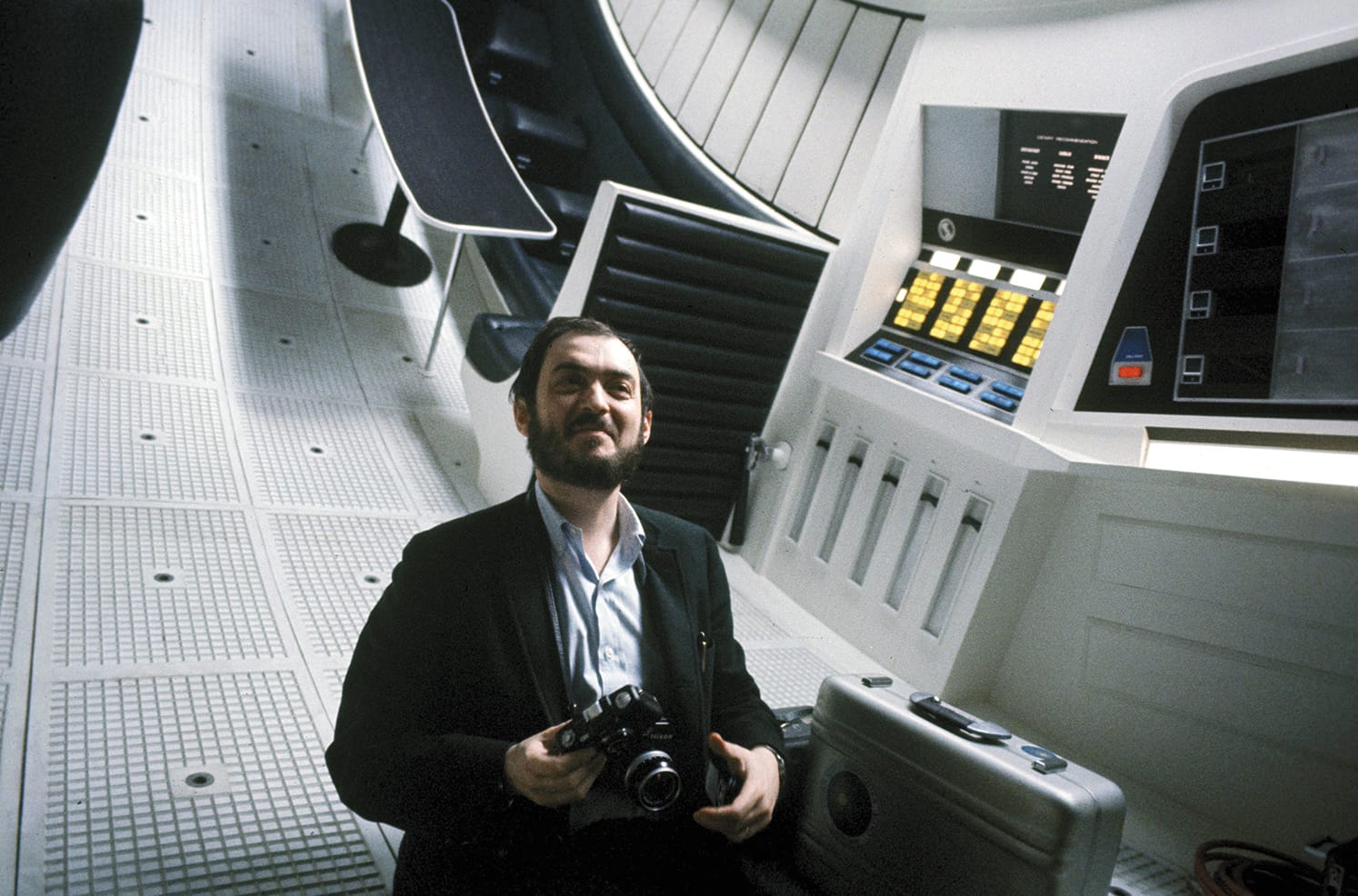
25 Seen here in a lighter moment, Kubrick frequently wielded one or more cameras during production. In this shot he has two.
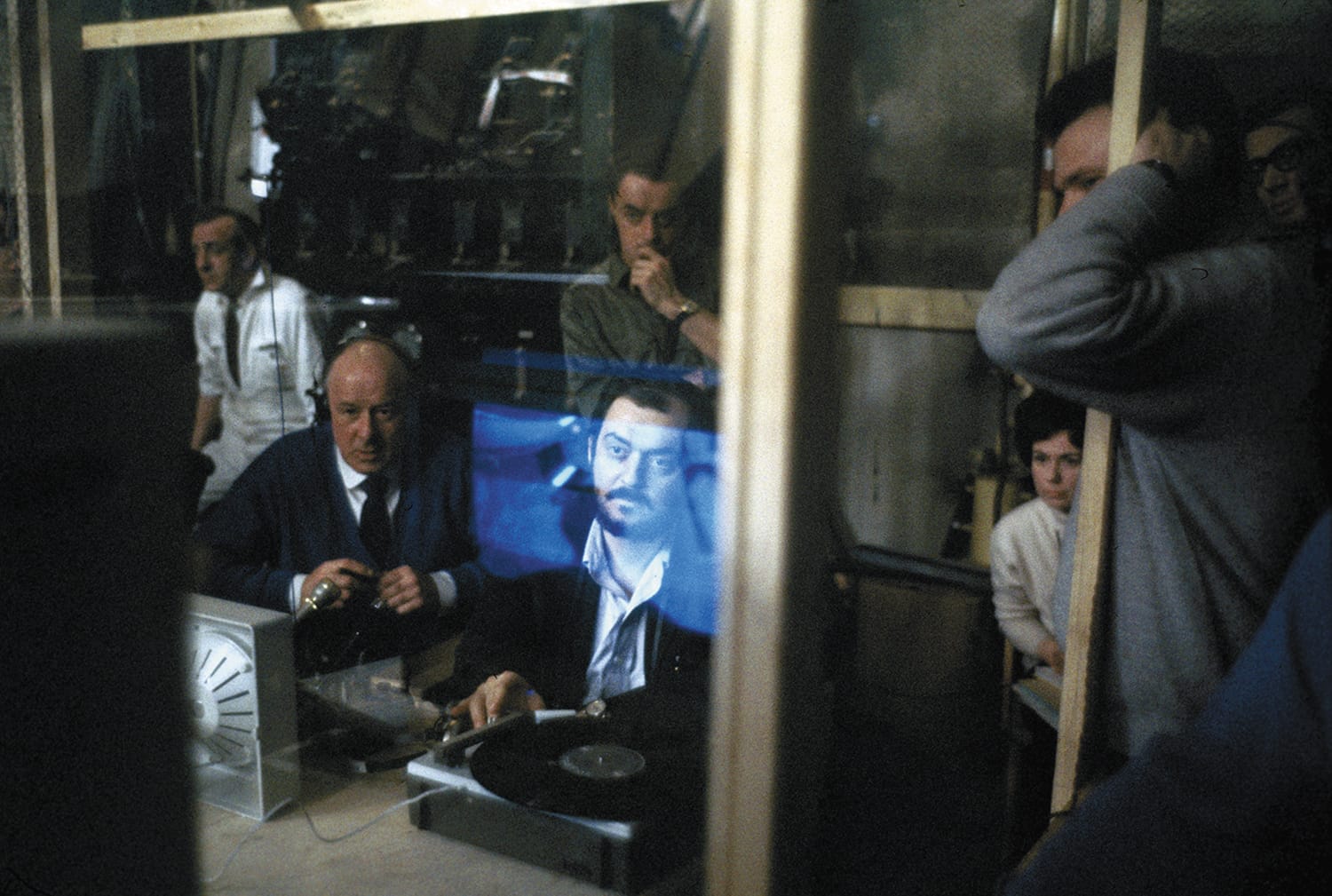
26 Watching video feed from inside the centrifuge during filming. Cinematographer Geoffrey Unsworth is to Kubrick’s left and camera assistant John Alcott is behind.
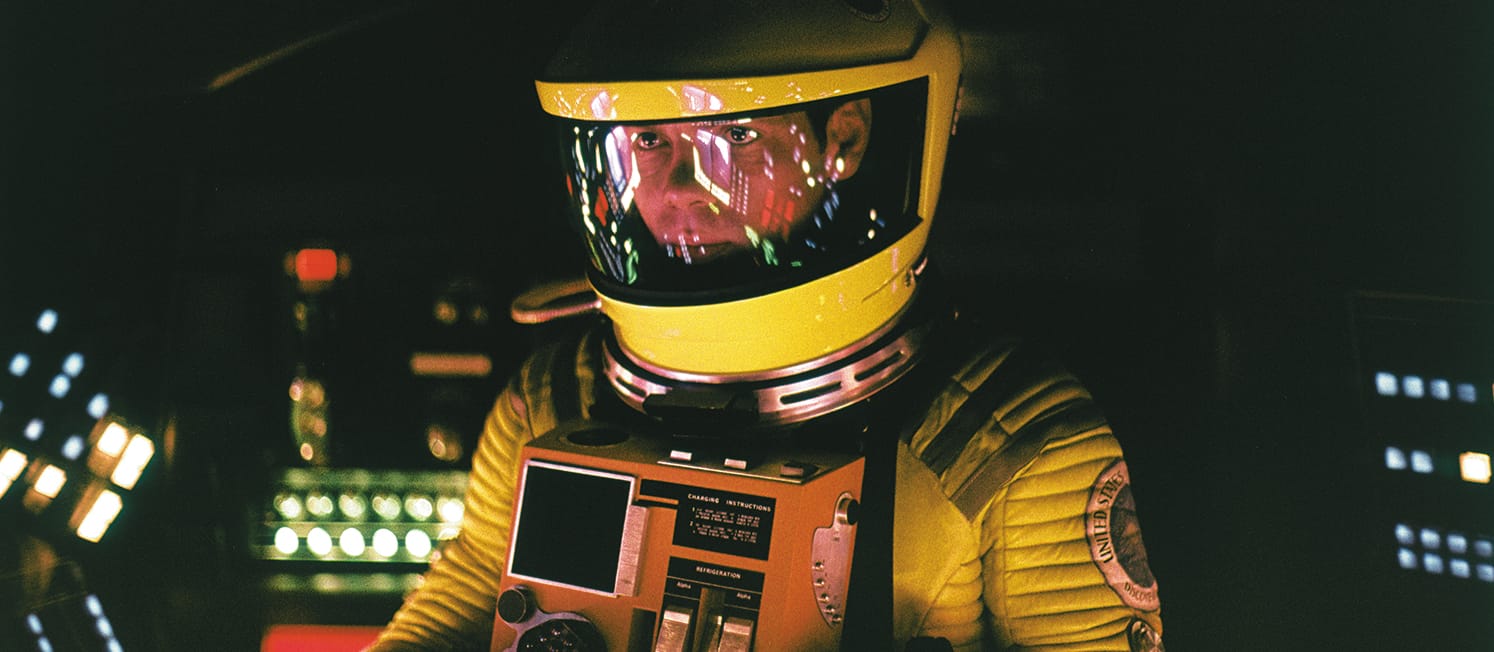
27 Poole goes to retrieve a second allegedly faulty antenna guidance unit.
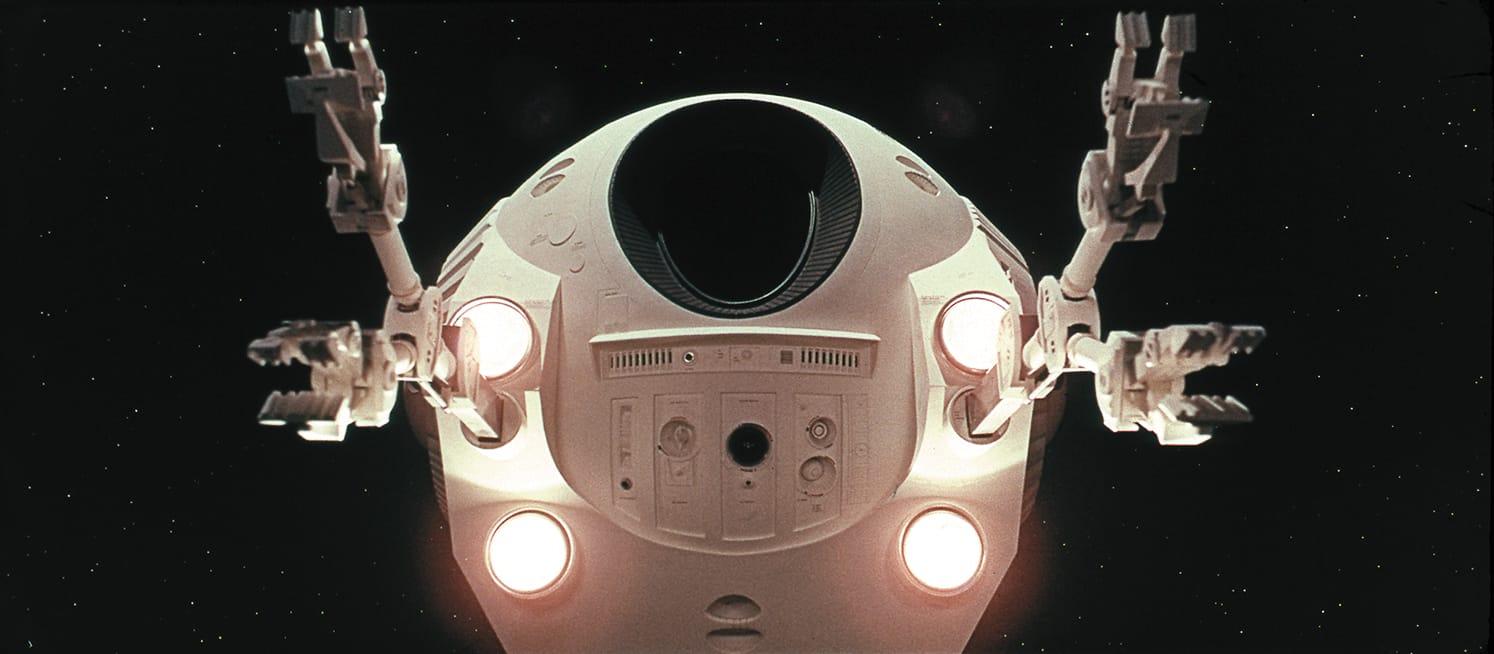
28 Mimicking a pose from the 1931 film Frankenstein, Poole’s pod attacks the spacewalking astronaut while under HAL’s control.
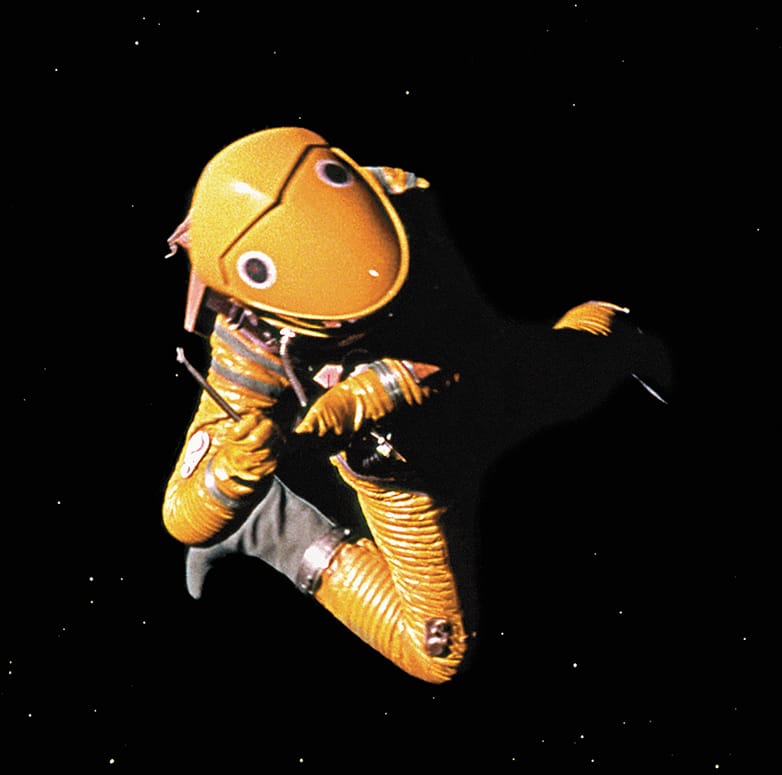
29 Bill Weston as Poole tumbles through space, struggling to reconnect his severed oxygen line. Given Weston’s working conditions, the feeling was not unfamiliar to him.

30 Bowman retrieves Poole’s spinning body—one of Weston’s most difficult stunts.
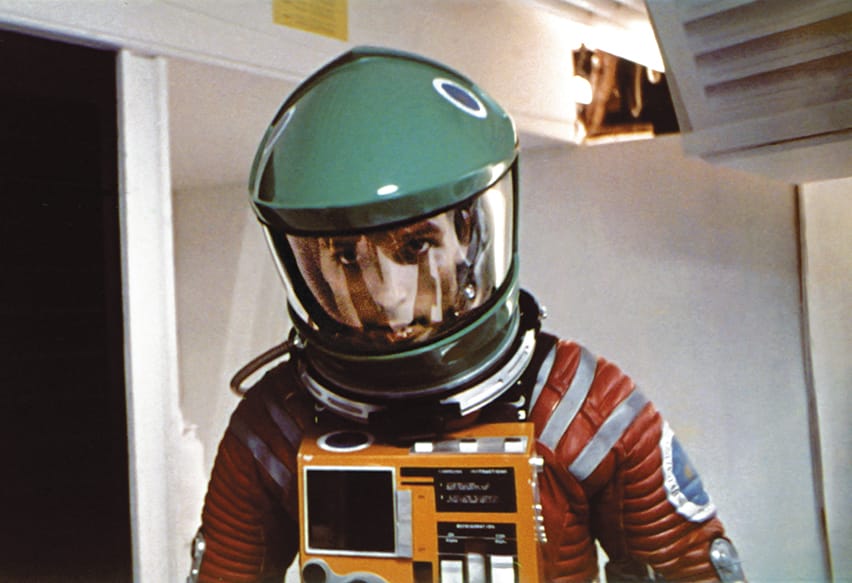
31 Bowman marches grimly toward HAL’s Brain Room.
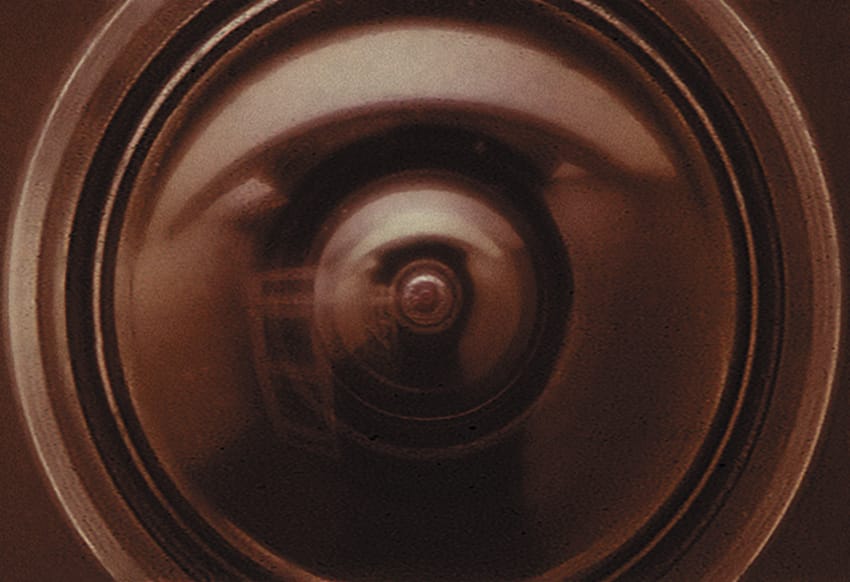
32 Following his disconnection, HAL’s eye goes dead.
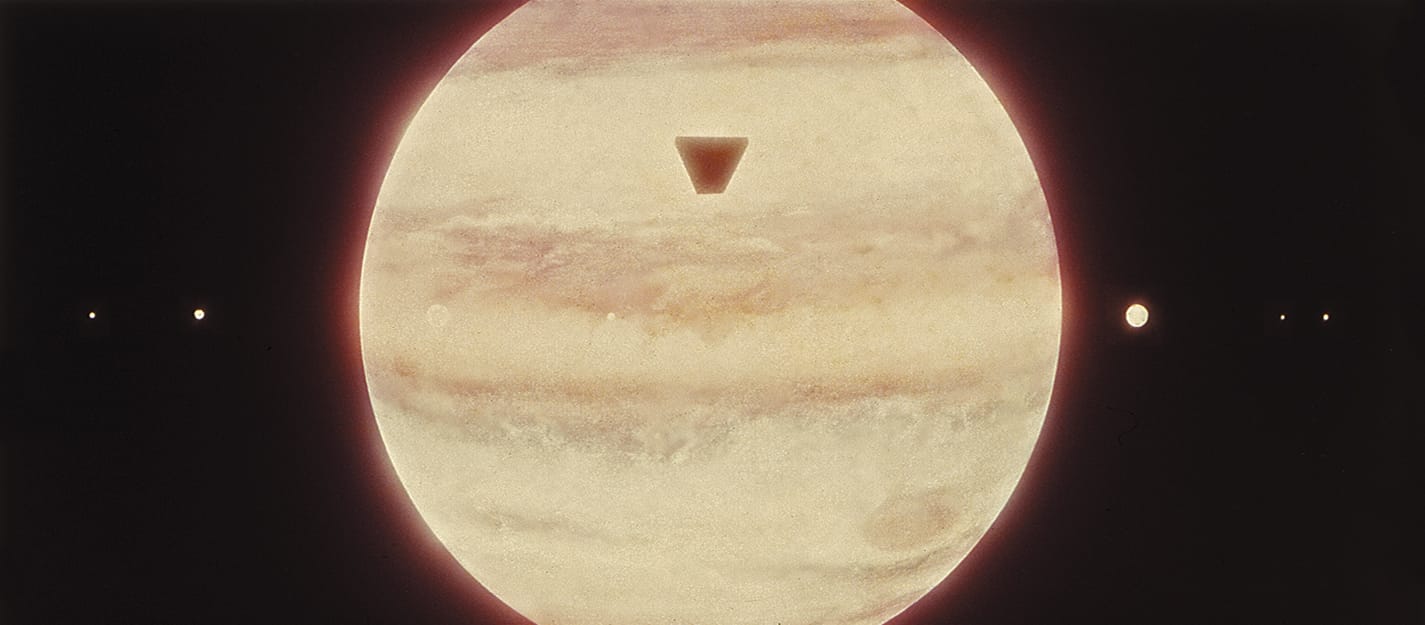
33 An early effects shot showed the waiting monolith silhouetted against Doug Trumbull’s rendition of planet Jupiter.
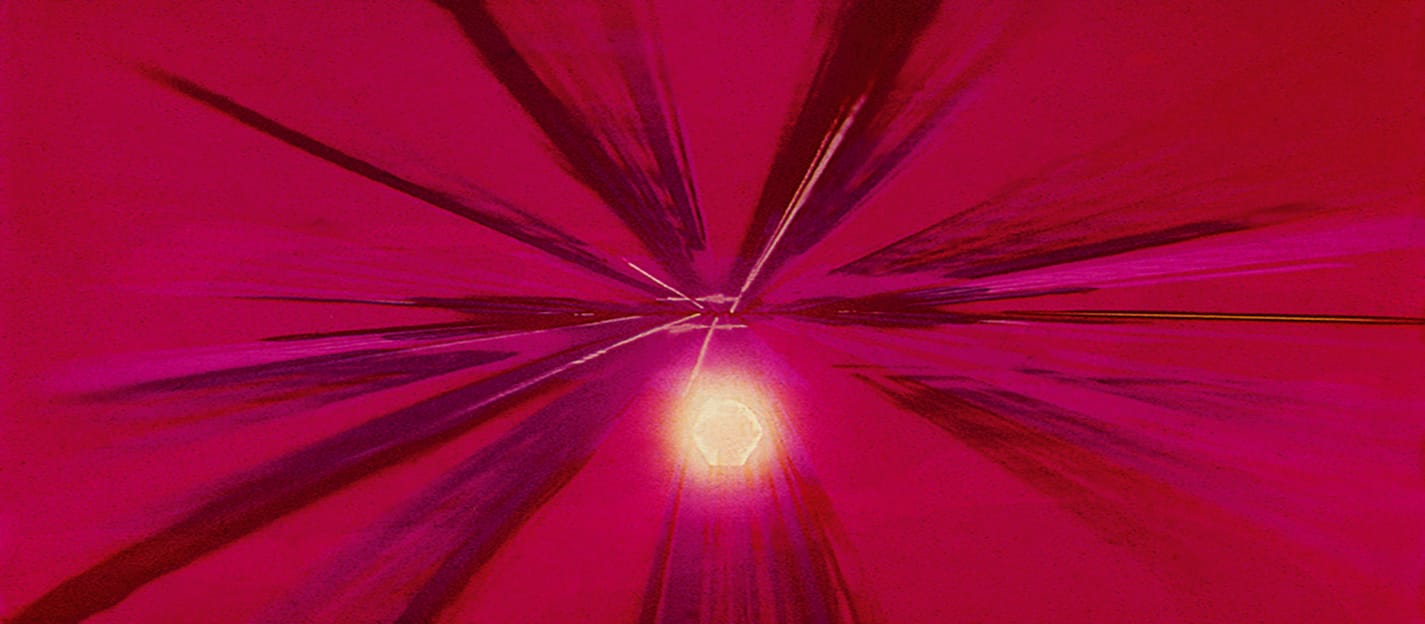
34 Unused Star Gate material in which the hurtling space pod (the white orb near center) was seen from outside.
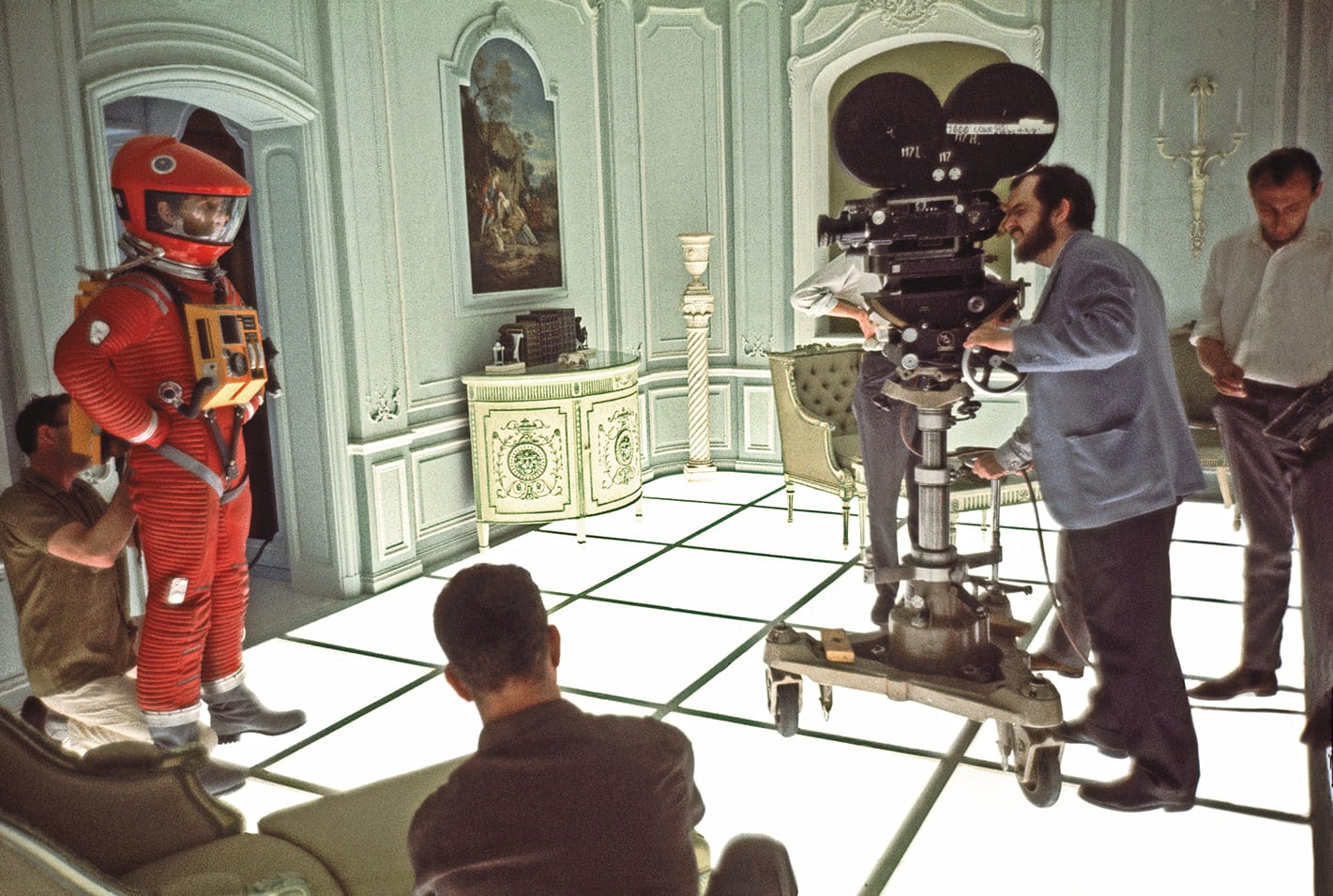
35 Kubrick frames a shot in the Hotel Room.
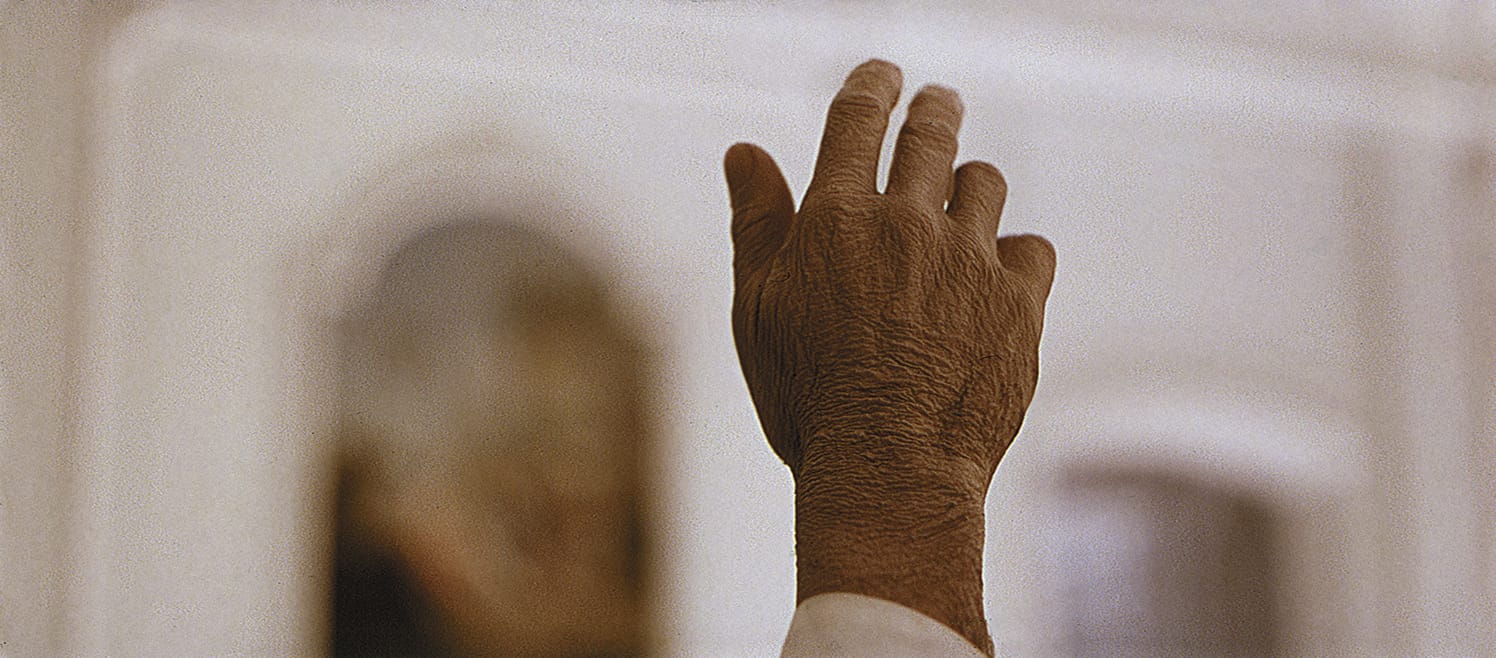
36
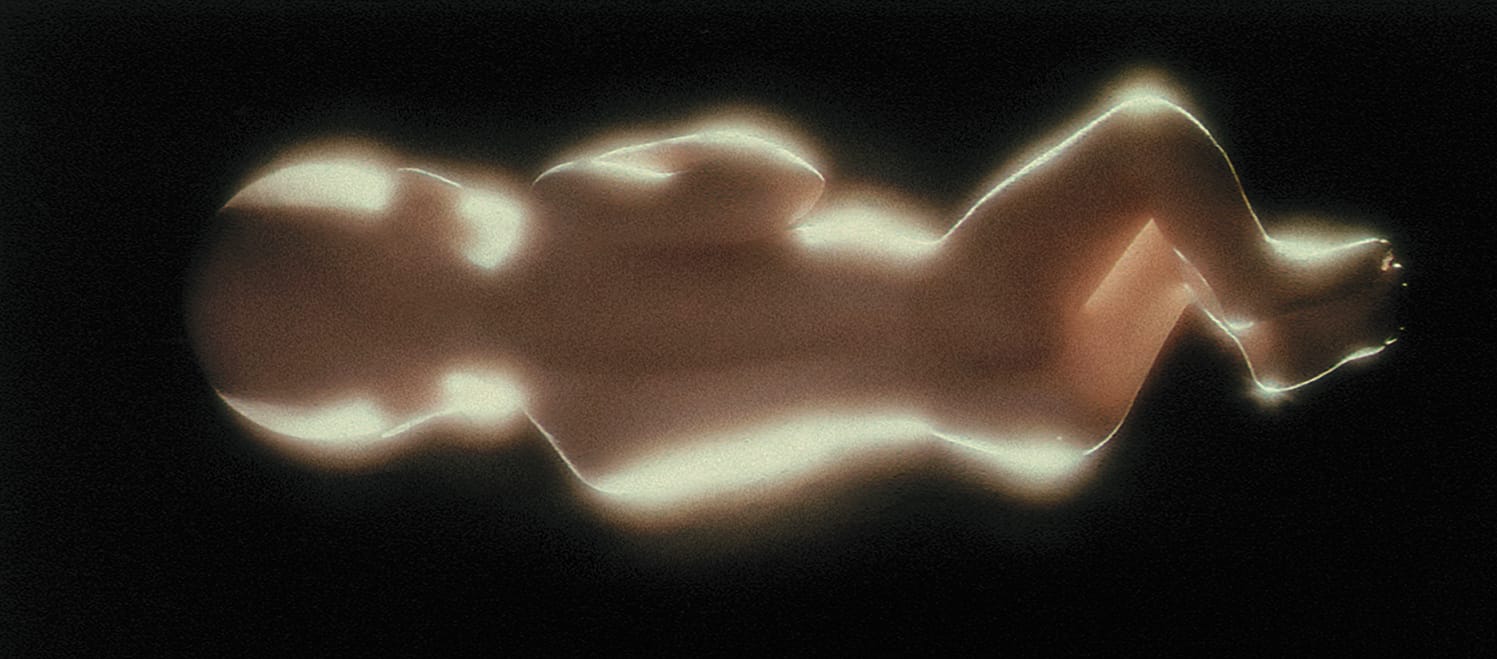
37 Keir Dullea as Bowman dies and is reborn as a Star Child.

38 Crop of an establishing shot in which the Star Child approaches planet Earth.